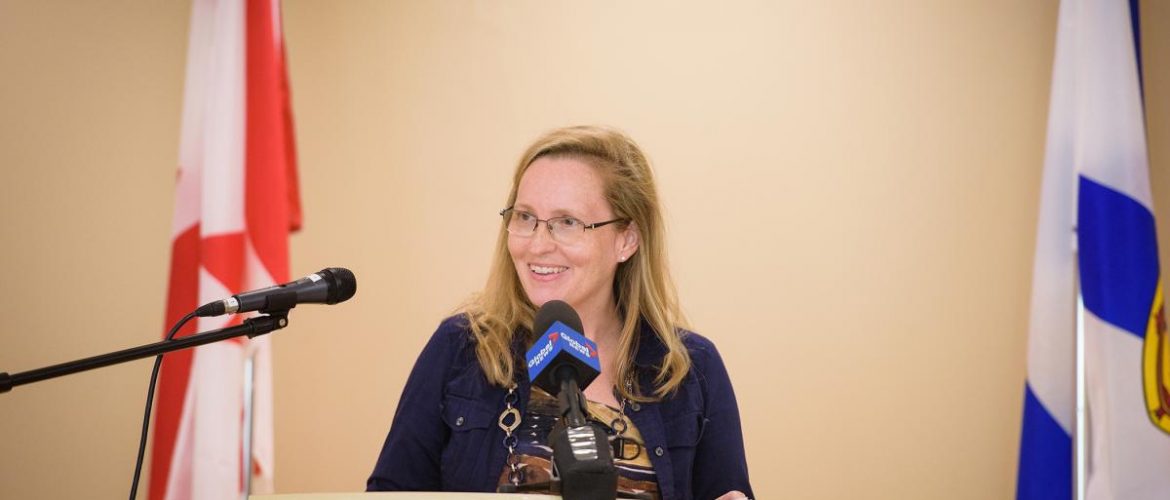Mr. G. is a 72-year-old retired businessman living in Nova Scotia. With a family history of dementia, a personal history of heart disease and high blood pressure, and currently undergoing treatment for a mood disorder, you might say his most important goal is keeping illness at bay.
But lately Mr. G has been taking a more proactive approach to his well-being. He’s been walking more; 180 minutes a week, in fact. He reads. He’s started a mindfulness practice a few minutes a day. And he’s even agreed to take a trip overseas with his wife to visit family and friends—something he never would have agreed to before.
Why the change? Mr. G credits a program introduced to him by his doctor: the Fountain of Health.
One of the first of its kind in the world, Nova Scotia-based educational initiative Fountain of Health (FoH) translates the current science on healthy aging into practical tools seniors can use to improve health outcomes and prevent or delay dementia and other cognitive illness. With support from the Centre for Aging + Brain Health Innovation (CABHI), led by Baycrest, the program is shifting mindsets about what seniors’ healthcare could look like.
Founder Dr. Keri-Leigh Cassidy, a professor of geriatric psychiatry at Dalhousie University, spearheaded the initiative in 2010. The project is an early example of what’s called ‘positive psychiatry,’ a new wave of cognitive therapy that focuses on health and wellness promotion.
It’s part of a growing recognition that healthcare should encompass not only the treatment of symptoms, but also the promotion of ways people can incorporate healthy habits into their life.
“We know how well these tools and approaches work in late-stage disease, even in people who are very ill and have run out of other options,” Dr. Cassidy says. “Through the Fountain of Health initiative we are making these effective approaches available at a wider scale and earlier in the course of a disease, even prior to its development.”
The initiative centres around five key actions patients can focus on to optimize their long-term brain health and wellness: positive thinking, social activity, physical activity, brain challenge, and looking after one’s mental health.
“A big eye-opener”
Dr. Cassidy successfully applied to CABHI’s Spark Program, which supports the testing and development of promising early-stage innovations. The $50,000 in CABHI funding was leveraged for a feasibility study using Fountain of Health with participating clinicians on the front lines of care within the Nova Scotia Health Authority.

Dr. Keri-Leigh Cassidy, the founder of Fountain of Health.
The project team trained nearly 60 clinicians across a variety of healthcare settings for the study. Then, using Fountain of Health materials—an app and paper-based tools—these clinicians used 10 minutes of a patient’s appointment to help the patient set a health goal based on one or more of the five key actions.
The most important aspect of the goal? It had to be attainable—like walking the dog twice a week, regularly attending a seniors’ social program, or recording three things they were grateful for each morning.
“No goal is ever too small if you’re actually sticking to it,” says Dr. Cassidy. “The research shows that any step in the right direction, especially when taken in a supported and informed way, leads to success that can be built on over time.”
The clinicians then followed up twice, one month apart, to check in on progress or modify the goal if their patient was having trouble. In a three-month period, the program saw an incredible 80% success rate in the 175 patients reached—meaning four out of five had successfully integrated a healthy new habit into their life.
“Fountain of Health was a big eye-opener for me, to know what I can do to improve my life and health,” says Mr. G, whose experience we recounted above. “It gives you a strategy, which is key. Left to my own, I’m not as disciplined.”
The program didn’t only affect patients. Many clinicians reported back that Fountain of Health helped them open an effective dialogue with patients about improving their brain health.
“Many clinicians do try to incorporate brain health promotion into their practice, but they don’t necessary have a way to track whether it’s effective, or to document what they’re doing,” Dr. Cassidy says. “Fountain of Health allows clinicians to capture their efforts and access effective tools to improve patient health behaviours and outcomes.”
National scale-up
With the success of the CABHI-funded study in Nova Scotia, Dr. Cassidy and her team are ready to take the next step: scaling up on a national level.
The initiative was recently accepted to CABHI’s Researcher-Clinician Partnership Program (RCP2). The RCP2 project will provide support to spread Fountain of Health to healthcare providers across the country, led by the Canadian Coalition for Seniors’ Mental Health. FoH received an additional $50,000 grant from the Nova Scotia Health Research Foundation, for work taking place in Nova Scotia, as part of the larger project.
“Working with CABHI has been a great experience,” says Dr. Cassidy. “It’s nice to be a Nova Scotian example of CABHI funding moving a good idea forward. We are looking forward to continuing our involvement with RCP2.”
The anticipated outcome is that as the program is more widely adopted, more older adults across Canada will have the opportunity to benefit.
“Fountain of Health has the potential to support prevention of dementia as well as many other chronic diseases,” says Dr. Cassidy. “We hope that potential will be harnessed to its fullest here in Nova Scotia and across Canada.”


